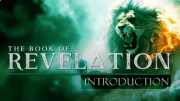Soul sleep or conscious existence?
[read in Bible Prophecy Insights (pdf)]
If several years ago you had asked me what happens when you die, I would have given you a pathetic answer. I would have told you that when you die your soul goes to sleep until the Lord returns. At the return of the Lord, your soul is resurrected and judged, and you are either consigned to Hell or allowed to enter Heaven.
My conception of Heaven was that of a spirit world where the saved spend eternity as disembodied spirits, floating around on clouds, playing harps.
A Mistaken View
Needless to say, I couldn’t get very excited about all that. I sure didn’t like the idea of being unconscious in the grave for eons of time. Nor could I develop any enthusiasm for the prospect of being a disembodied spirit with no particular identity or personality. And the idea of playing a harp for all eternity was downright scandalous, for I had been taught that instrumental music in worship was an abomination!
You can imagine, therefore, the sense of shock I felt when I started studying Bible prophecy and discovered that all these ideas of mine about life after death were foreign to God’s Word. But my shock quickly gave way to exhilaration when I discovered what the Lord really has in store for me.
Please watch this presentation by Dr. David Reagan as he articulates what happens to Christians when they die:
The Biblical View
I learned from God’s Word that when those of us who are Christians die, our spirits never lose their consciousness (Phil. 1:23). Instead, our fully conscious spirits are immediately ushered into the presence of Jesus by His holy angels (2 Cor. 5:8).
Our spirits remain in the Lord’s presence until He appears for His Church. At that time, He brings our spirits with Him, resurrects our bodies, reunites our spirits with our bodies, and then glorifies our bodies, perfecting them and rendering them eternal (1 Thess. 4:13-18).
We return with Him to Heaven in our glorified bodies where we are judged for our works to determine our degrees of rewards (2 Cor. 5:10). When this judgment is completed, we participate in a glorious wedding feast to celebrate the union of Jesus and His Bride, the Church (Rev. 19:7-9).
Witnesses of Glory
At the conclusion of the feast, we burst from the heavens with Jesus, returning with Him to the earth in glory (Rev. 19:14). We witness His victory at Armageddon, we shout “Hallelujah!” as He is crowned King of kings and Lord of lords, and we revel in His glory as He begins to reign over all the earth from Mt. Zion in Jerusalem (Zech. 14:1-9; Rev. 19:17-21).
For a thousand years we participate in that reign, assisting Him with the instruction, administration, and enforcement of His perfect laws (Rev. 20:1-6). We see the earth regenerated and nature reconciled (Isa. 11:6-9). We see holiness abound and the earth flooded with peace, righteousness and justice (Mic. 4:1-7).
At the end of the Millennium we witness the release of Satan to deceive the nations. We see the truly despicable nature of the heart of Man as millions rally to Satan in his attempt to overthrow the throne of Jesus. But we will shout “Hallelujah!” again when we witness God’s supernatural destruction of Satan’s armies and see Satan himself cast into Hell where he will be tormented forever (Rev. 20:7-10).
We will next witness the Great White Throne Judgment when the unrighteous are resurrected to stand before God. We will see perfect holiness and justice in action as God pronounces His terrible judgment upon this congregation of the damned who have rejected His gift of love and mercy in Jesus Christ (Rev. 20:11-13).
Jesus will be fully vindicated as every knee shall bow and every tongue confess that He is Lord. Then the unrighteous will receive their just reward as they are cast into Hell (Rev. 20:14-15).
Witnesses of a New Creation
We will then witness the most spectacular fireworks display in all of history. We will be taken to the New Jerusalem, the eternal mansion prepared by Jesus for His Bride, and from there we will watch as God renovates this earth with fire, burning away all the filth and pollution left by Satan’s last battle (2 Pet. 3:12-13).
Just as the angels rejoiced when God created the universe, we will rejoice as we watch God superheat this earth and reshape it like a hot ball of wax into the New Earth, the eternal earth, the paradise where we will live forever in the presence of God (Rev. 21:1).
What a glorious moment it will be when we are lowered to the New Earth inside the fabulous New Jerusalem (Rev. 21:2). God will come down from Heaven to dwell with us (Rev. 21:3). He will proclaim: “Behold, I make all things new” (Rev. 21:5) We will see God face to face (Rev. 22:4). He will wipe away all our tears (Rev. 21:4). Death will be no more (Rev. 21:4). We will be given new names (Rev. 2:17), and we will exist as individual personalities encased in perfect bodies (Phil. 3:21). And we will grow eternally in knowledge and love of our infinite Creator, honoring Him with our talents and gifts.
Now, I can get excited about that!
The Word vs. Tradition
Isn’t it amazing how far we can drift away from the Word of God when we stop reading His Word and start mouthing the traditions of men?
As I kept making one discovery after another in God’s Prophetic Word that ran contrary to what I had been taught, I began to wonder about the origin of the doctrines I had learned. It didn’t take me long to discover that the source was Greek philosophy.
The first attempt to mix the concepts of Greek philosophy with the teachings of God’s Word came very early in the history of the Church. The attempt was called Gnosticism. The Gnostic heresy arose among the first Gentile converts because they tried to Hellenize the Scriptures; that is, they tried to make the Scriptures conform to the basic tenets of Greek philosophy.
The Greeks believed that the material universe, including the human body, was evil. This negative view of the creation was diametrically opposed to Hebrew thought, as revealed in the Bible. To the Hebrew mind, the world was created good (Genesis 1:31). And even though the goodness of the creation was corrupted by the sin of Man (Isaiah 24:5-6), the creation still reflects to some degree the glory of God (Psalms 19:1). Most important, the creation will someday be redeemed by God (Romans 8:18-23).
The Gnostic Heresy
When the first Gentiles were converted to the Gospel, their Greek-mind set immediately collided with some of the fundamental teachings of Christianity. For example, they wondered, “How could Jesus have come in the flesh if He was God? God is holy. How can He who is holy be encased in a body which is evil?”
In short, because they viewed the material universe as evil, they could not accept the Bible’s teaching that God became incarnate in the flesh. Their response was to develop the Gnostic heresy that Jesus was a spirit being or phantom who never took on the flesh and therefore never experienced physical death.
This heresy is denounced strongly in Scripture. In 1 John 4:1-2 we are told to test those who seek our spiritual fellowship by asking them to confess “that Jesus Christ has come in the flesh.”
The Augustinian Corruption
About 400 A.D. a remarkable theologian by the name of St. Augustine attempted to Hellenize what the Scriptures taught about end time events and life after death. Augustine was very successful in his attempt. His views were adopted by the Council of Ephesus in 431 A.D. and have remained Catholic dogma to this day.
The influence of Greek philosophy would not allow Augustine to accept what the Bible taught about life after death.
For example, the Bible says the saints will spend eternity in glorified bodies on a New Earth (Revelation 21:1-7). Such a concept was anathema to the Greek mind of Augustine. If the material world is evil, then he reasoned that the material world must cease to exist when the Lord returns. Augustine solved the problem by spiritualizing what the Bible said. He did this by arguing that the “new earth” of Revelation 21 is just symbolic language for Heaven.
Augustine’s views are held by most professing Christians today, both Catholic and Protestant. That means that most of Christianity today teaches Greek philosophy rather than the Word of God when it comes to the realm of end time prophecy and life after death.
The Intermediate State
Some of the greatest confusion about life after death relates to the intermediate state between death and eternity. Some people advocate a concept called “soul sleep.” They argue that both the saved and unsaved are unconscious after death until the return of Jesus.
But the Bible makes it crystal clear that our spirit does not lose its consciousness at death. The only thing that “falls asleep” is our body — in a symbolic sense. Paul says in 2 Corinthians 5:8 that he would prefer to be “absent from the body and at home with the Lord.” In Philippians 1:21 he observes, “For me to live is Christ and to die is gain.” He then adds in verse 23 that his desire is “to depart and be with Christ.” Paul certainly did not expect to be in a coma after he died!
If then our spirits retain their consciousness after death, where do they go? The Bible teaches that prior to the resurrection of Jesus, the spirits of the dead went to a place called Hades (“Sheol” in the Old Testament). The spirits existed there consciously in one of two compartments, either Paradise or Torments. This concept is pictured graphically in Jesus’ story of the rich man and Lazarus (Luke 16:19-31).
The Bible indicates that after the death of Jesus on the Cross, He descended into Hades and declared to all the spirits there His triumph over Satan (1 Peter 3:18-19; 4:6). The Bible also indicates that after His resurrection, when He ascended into Heaven, Jesus took Paradise with Him, transferring the spirits of dead saints from Hades to Heaven (Ephesians 4:8-9 and 2 Corinthians 12:1-4). The spirits of dead saints are thereafter pictured as being in Heaven before the throne of God (See Revelation 6:9 and 7:9).
The spirits of the righteous dead could not go directly to Heaven before the Cross because their sins were not forgiven. Instead, their sins were merely covered by their faith. The forgiveness of their sins had to await the shedding of the blood of Christ (Leviticus 17:11; Romans 5:8-9; Hebrews 9:22).
Events at Death
So, what happens when you die? If you are a child of God, your spirit is immediately ushered into the bosom of Jesus by His holy angels. Your spirit remains in Heaven, in the presence of God, until the time of the Rapture. When Jesus comes for His Church, He brings your spirit with Him, resurrects and glorifies your body, making it eternal in nature (1 Corinthians 15 and 1 Thessalonians 4). You reign with Christ for a thousand years and then live eternally with Him on the new earth (Revelation 20-22).
If you are not a child of God, then your spirit goes to Hades at your death. This is a place of torments where your spirit is held until the resurrection of the unrighteous which takes place at the end of the millennial reign of Jesus. At that resurrection you are taken before the Great White Throne of God where you are judged by your works and then condemned to the “second death,” which is the “lake of fire” or Hell (Revelation 20:11-15).
Preparing for Eternity
One thing is certain: “Every knee shall bow and every tongue confess that ‘Jesus is Lord!’” (Isaiah 45:23; Romans 14:11). Your eternal destiny will be determined by when you make this confession.
If it is made before you die, then you will spend eternity with God. If not, then you will make the confession at the Great White Throne judgment before you are cast into Hell. To spend eternity with God, your confession of Jesus as Lord must be made now.





